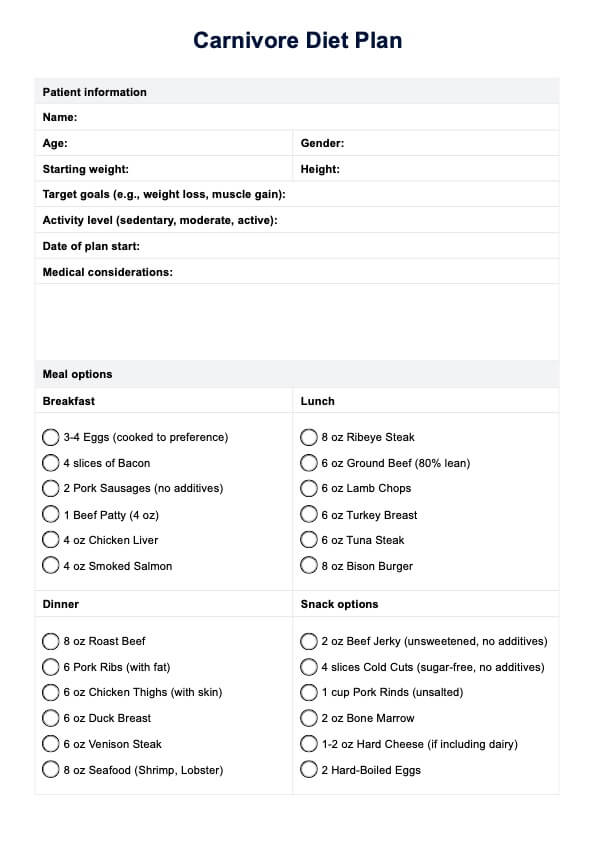The healthiness of a Carnivore Diet Plan depends on individual health conditions and responsibilities. It's crucial to consult with a healthcare provider before starting such a restrictive diet.

Carnivore Diet Plan
Manage your Carnivore Diet Plan effectively with Carepatron's secure, user-friendly app for streamlined diet tracking and health collaboration.
Use Template
Carnivore Diet Plan Template
Commonly asked questions
Strict Carnivore Diet Plans are often used by individuals seeking to eliminate carbohydrates, address specific health issues, or follow a simplistic diet.
Carnivore Diet Plans involve consuming only animal products and eliminating all plant-based foods, often focusing on high-fat and protein-rich foods.
EHR and practice management software
Get started for free
*No credit card required
Free
$0/usd
Unlimited clients
Telehealth
1GB of storage
Client portal text
Automated billing and online payments











